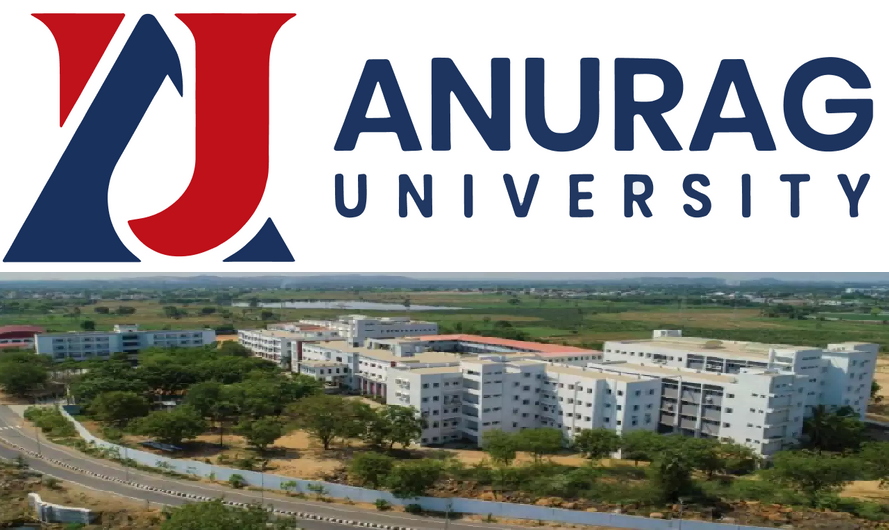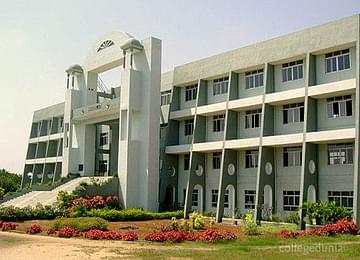
1.Professor Jayashankar Telangana State Agricultural University (PJTSAU), Hyderabad – Detailed Review
Overview:
Professor Jayashankar Telangana State Agricultural University (PJTSAU) is a renowned agricultural university established in 2014, following the bifurcation of the Acharya N.G. Ranga Agricultural University. It is named after Professor Jayashankar, an eminent educationist and Telangana ideologue. The university aims to provide quality education in agriculture and allied fields, along with promoting research and extension activities.
Academics:
- Courses Offered: PJTSAU offers a wide range of undergraduate, postgraduate, and doctoral programs in agriculture and allied fields, such as B.Sc. (Hons) Agriculture, B.Tech (Agricultural Engineering), M.Sc. (Agriculture), M.Tech (Agricultural Engineering), and Ph.D. programs.
- Affiliation: It is an autonomous state university, with its own syllabus and curriculum designed to meet the specific needs of agriculture in the Telangana region.
- Admission Process: Admissions to undergraduate programs like B.Sc. (Hons) Agriculture are based on the scores obtained in the EAMCET entrance exam, while postgraduate admissions are through the university’s entrance exam or the ICAR AIEEA (All India Entrance Examination for Admission).
- Academic Quality: The university is known for its emphasis on practical and field-oriented training, with a well-structured curriculum that covers both theoretical and practical aspects of agriculture. It also promotes research activities, with well-equipped labs and field stations.
Rating: 4.2/5
Infrastructure:
- Campus Facilities: PJTSAU has a well-developed campus with modern lecture halls, laboratories, greenhouses, and agricultural fields for practical training. The campus is spread over a large area, providing ample space for fieldwork and research.
- Library: The university’s library is well-stocked with a comprehensive collection of books, journals, and digital resources related to agriculture and allied sciences. It provides access to various online databases and e-journals, supporting both students and researchers.
- Research Facilities: PJTSAU is known for its research in various agricultural disciplines. The university has research centers and specialized departments for different crops, soil sciences, water management, and agricultural engineering.
Rating: 4.3/5
Hostel Facilities:
- Hostel Accommodation: PJTSAU provides hostel facilities for both boys and girls, with shared rooms and basic amenities. The hostels are located within the campus, making it convenient for students.
- Mess Facilities: The hostels have mess facilities that serve vegetarian and non-vegetarian food. The food quality is considered decent, though some students may find it repetitive.
- Recreational Facilities: The hostels have common rooms with basic recreational amenities, and the campus includes sports facilities like playgrounds for outdoor games, a gym, and facilities for indoor games.
Rating: 3.8/5
Fee Structure:
- Undergraduate Programs (B.Sc. Agriculture / B.Tech Agricultural Engineering):
- Tuition Fees: Approximately ₹15,000 to ₹25,000 per year for students under the government quota, making it quite affordable. For management quota or NRI seats, fees can be significantly higher.
- Hostel Fees: Around ₹8,000 to ₹15,000 per year, depending on the type of accommodation.
- Postgraduate Programs (M.Sc. / M.Tech):
- Tuition Fees: Approximately ₹30,000 to ₹40,000 per year.
- Ph.D. Programs:
- Tuition Fees: Around ₹50,000 to ₹60,000 per year.
- Additional Charges: Include examination fees, library fees, and other miscellaneous expenses.
Placements and Career Opportunities:
- Internships: As part of the curriculum, students undergo internships and practical training in research centers, farms, and industries, which provide hands-on experience in agriculture.
- Job Opportunities: PJTSAU graduates are highly sought after in government and private sectors, including agricultural companies, research institutions, banks (agricultural officers), seed companies, agri-tech firms, and agrochemical industries. The university has strong connections with the agricultural industry, aiding in placements.
- Post-Graduation Opportunities: Many students pursue higher studies, including master’s programs or Ph.D. in agriculture, often securing admission in reputed institutions across India and abroad.
Rating: 4/5
Overall Ratings:
- Academics: 4.2/5
- Infrastructure: 4.3/5
- Hostel Facilities: 3.8/5
- Placements: 4.4/5
- Student Life: 4/5
- Overall Rating: 4.1/5

2.Anurag University, Hyderabad – B.Sc. Agriculture: Detailed Review
Overview:
Anurag University is a private university located in Hyderabad, Telangana, offering various undergraduate, postgraduate, and doctoral programs across multiple disciplines. The university has recently added B.Sc. Agriculture to its course offerings, aiming to meet the growing demand for professionals in the agricultural sector. The program is designed to provide students with both theoretical knowledge and practical training in agriculture and related sciences.
Academics:
- Course Offered: B.Sc. (Hons) Agriculture is a 4-year undergraduate program that covers various aspects of agriculture, including agronomy, soil science, plant breeding, horticulture, agricultural economics, entomology, and agricultural engineering.
- Curriculum: The curriculum is designed as per ICAR (Indian Council of Agricultural Research) guidelines and includes theoretical studies, practical fieldwork, and project-based learning to provide hands-on experience.
- Faculty: The university has a mix of experienced faculty members and young educators, with expertise in different areas of agricultural science. The faculty is actively involved in research and development, adding to the academic strength of the program.
Rating: 4/5
Infrastructure:
- Campus Facilities: Anurag University has a modern campus with good infrastructure, including classrooms, well-equipped laboratories, greenhouses, and agricultural fields for practical training. The campus also provides access to modern technology and equipment used in agricultural research.
- Library: The university library is stocked with a variety of academic resources, including books, journals, and online databases related to agriculture and allied subjects.
- Laboratories: The agricultural labs are equipped for soil testing, plant pathology, and entomology studies, which help students gain practical exposure.
- Field Training: There are demonstration fields and research plots where students can participate in practical farming activities, helping them understand the real-world challenges of agriculture.
Rating: 4.2/5
Hostel Facilities:
- Hostel Accommodation: Anurag University provides separate hostel facilities for boys and girls. The rooms are typically shared, and basic amenities such as Wi-Fi, a study table, and a cupboard are available.
- Mess Facilities: The hostels have mess facilities that serve both vegetarian and non-vegetarian food. The quality of the food is generally considered good, with multiple meal options.
- Recreational Facilities: Hostels have common rooms for recreational activities, and the campus includes sports facilities such as a gym, basketball courts, cricket grounds, and indoor games.
Rating: 3.9/5
Fee Structure:
- B.Sc. (Hons) Agriculture:
- Tuition Fees: The annual tuition fee for B.Sc. Agriculture at Anurag University is approximately ₹1,00,000 to ₹1,20,000 per year. Being a private institution, the fees are higher compared to government colleges.
- Hostel Fees: Hostel fees range from ₹60,000 to ₹80,000 per year, depending on the type of accommodation (shared or single).
- Other Fees: Additional costs may include examination fees, library fees, and lab fees, which amount to around ₹10,000 to ₹15,000 annually.
Placements and Career Opportunities:
- Internships: The university encourages students to undertake internships in agricultural companies, research institutions, and NGOs. Internships are an integral part of the curriculum and provide hands-on experience.
- Placement Support: Anurag University has a dedicated placement cell that assists students in securing job opportunities. For B.Sc. Agriculture graduates, the university facilitates campus placements in companies dealing with agri-tech, seed production, fertilizer companies, and food processing industries.
- Job Prospects: Graduates can pursue careers in agricultural research organizations, agri-business firms, government jobs (e.g., agricultural officer), and private companies. The placement opportunities are decent, but some students may need to seek jobs outside the campus network to secure better positions.
Rating: 4/5
Overall Ratings:
- Academics: 4/5
- Infrastructure: 4.2/5
- Hostel Facilities: 3.9/5
- Placements: 3.8/5
- Student Life: 4/5
- Overall Rating: 4/5

3.Loyola Academy Degree & PG College – B.Sc. Agriculture: Detailed Review
Overview:
Loyola Academy Degree & PG College, affiliated with Osmania University, is a well-established institution in Hyderabad known for its quality education and holistic development of students. The college offers a Bachelor of Science (B.Sc.) in Agriculture, designed to equip students with the necessary knowledge and skills to succeed in the agricultural sector.
Academics:
- Course Offered: B.Sc. (Hons) Agriculture is a 4-year undergraduate program that covers various aspects of agriculture, including agronomy, horticulture, plant pathology, soil science, and agricultural economics.
- Curriculum: The curriculum includes theoretical coursework and practical training, emphasizing fieldwork, laboratory experiments, and research projects to provide students with a well-rounded education.
- Faculty: The college boasts a competent faculty with expertise in different areas of agricultural science. Many faculty members have experience in research and industry, enhancing the quality of education.
Rating: 4.0/5
Infrastructure:
- Campus Facilities: Loyola Academy has a sprawling campus equipped with modern amenities, including well-furnished classrooms, laboratories for practical learning, and dedicated agricultural research fields.
- Laboratories: The agricultural laboratories are equipped with modern equipment for conducting various experiments in soil analysis, plant pathology, and other related fields.
- Library: The college library has a good collection of books, journals, and research papers related to agriculture and allied fields, providing valuable resources for students.
Rating: 4.1/5
Hostel Facilities:
- Accommodation: Loyola Academy offers hostel facilities for both boys and girls. The rooms are generally shared and equipped with basic amenities.
- Mess Facilities: The hostel mess provides nutritious meals, with options for vegetarian and non-vegetarian diets. The quality of food is generally satisfactory.
- Recreational Facilities: The hostels have common areas for social interaction, and the campus provides various sports facilities and extracurricular activity spaces.
Rating: 3.8/5
Fee Structure:
- B.Sc. (Hons) Agriculture:
- Tuition Fees: The annual tuition fee for the B.Sc. Agriculture program is approximately ₹55,000 to ₹70,000.
- Hostel Fees: The hostel fees range from ₹30,000 to ₹40,000 per year, depending on the type of accommodation.
- Additional Charges: Other fees may include laboratory fees, examination fees, and library fees, which can add another ₹10,000 to ₹15,000 to the annual cost.
Placements and Career Opportunities:
- Internships: The college encourages students to undertake internships during their studies, providing exposure to practical agricultural practices and industry standards.
- Placement Support: Loyola Academy has a dedicated placement cell that assists students in securing internships and job placements. The college has tie-ups with several agricultural companies, NGOs, and government organizations.
- Job Prospects: Graduates of the B.Sc. Agriculture program can pursue careers in various fields, including agronomy, horticulture, agricultural marketing, government services (e.g., agriculture officers), and research roles. Placement opportunities are available, though they may not be as extensive as those in larger agricultural universities.
Rating: 4.0/5
Overall Ratings:
- Academics: 4.0/5
- Infrastructure: 4.1/5
- Hostel Facilities: 3.8/5
- Placements: 3.9/5
- Student Life: 4.0/5
- Overall Rating: 4.0/5

4.Malla Reddy University – B.Sc. Agriculture: Detailed Review
Overview:
Malla Reddy University, located in Hyderabad, Telangana, is a private institution that offers a range of undergraduate, postgraduate, and doctoral programs. The university aims to provide quality education and skill development across various fields, including agriculture. The B.Sc. (Hons) Agriculture program is designed to equip students with essential knowledge and practical skills required for a successful career in agriculture and related sectors.
Academics:
- Course Offered: B.Sc. (Hons) Agriculture is a 4-year undergraduate program that covers various disciplines within agriculture, including agronomy, horticulture, soil science, plant breeding, and agricultural economics.
- Curriculum: The curriculum is structured to provide a comprehensive understanding of agricultural practices, sustainable farming, and modern agricultural technologies. It includes both theoretical coursework and practical training.
- Faculty: Malla Reddy University has a team of qualified faculty members with expertise in agricultural science. Many faculty members have industry experience and engage in research, enhancing the learning experience for students.
Rating: 4.0/5
Infrastructure:
- Campus Facilities: The university boasts a modern campus with good infrastructure, including well-equipped classrooms, laboratories, and agricultural fields for practical training. The campus environment is conducive to learning and research.
- Laboratories: The agricultural laboratories are equipped with modern instruments and facilities to conduct experiments related to soil testing, plant pathology, and other agricultural sciences.
- Library: The university library has a collection of books, journals, and online resources relevant to agriculture and allied subjects, providing valuable resources for students.
Rating: 4.1/5
Hostel Facilities:
- Accommodation: Malla Reddy University offers hostel facilities for both boys and girls. The hostels provide shared accommodation with basic amenities.
- Mess Facilities: The hostel mess serves nutritious meals, including vegetarian and non-vegetarian options. The quality of food is generally satisfactory, with students appreciating the variety.
- Recreational Facilities: Common areas for socializing are available in the hostels, and the campus includes sports facilities for outdoor activities and physical fitness.
Rating: 3.8/5
Fee Structure:
- B.Sc. (Hons) Agriculture:
- Tuition Fees: The annual tuition fee for the B.Sc. Agriculture program is approximately ₹1,00,000 to ₹1,20,000, which is on the higher side compared to government institutions.
- Hostel Fees: Hostel fees range from ₹50,000 to ₹70,000 per year, depending on the type of accommodation chosen.
- Additional Charges: Other fees may include laboratory fees, examination fees, and library fees, which could add another ₹10,000 to ₹15,000 to the total annual cost.
Placements and Career Opportunities:
- Internships: The university encourages students to participate in internships during their course, providing exposure to practical agricultural practices and industry standards. Internships are an integral part of the curriculum.
- Placement Support: Malla Reddy University has an active placement cell that assists students in securing job opportunities in various agricultural firms, research institutions, and government agencies.
- Job Prospects: Graduates can pursue careers in agricultural research organizations, agribusiness companies, government services, and NGOs. While the placement opportunities are decent, they may not be as extensive as in more established agricultural universities.
Rating: 4.0/5
Overall Ratings:
- Academics: 4.0/5
- Infrastructure: 4.1/5
- Hostel Facilities: 3.8/5
- Placements: 3.9/5
- Student Life: 4.0/5
- Overall Rating: 4.0/5
5.Nizam College (Osmania University) – B.Sc. Agriculture: Detailed Review
Overview:
Nizam College, one of the oldest and most prestigious educational institutions in Hyderabad, is affiliated with Osmania University. It offers a variety of undergraduate and postgraduate programs, including a Bachelor of Science (B.Sc.) in Agriculture. The college has a strong academic reputation and is known for its commitment to providing quality education.
Academics:
- Course Offered: B.Sc. (Hons) Agriculture is a 4-year undergraduate program focusing on various agricultural disciplines, including agronomy, horticulture, soil science, plant pathology, and agricultural economics.
- Curriculum: The curriculum is designed to meet the requirements of the agricultural industry and includes theoretical classes, practical training, and fieldwork. The program emphasizes hands-on learning to prepare students for real-world challenges in agriculture.
- Faculty: Nizam College has a diverse and experienced faculty who are well-versed in their respective fields. Many faculty members have significant academic and research experience, contributing to a robust learning environment.
Rating: 4.0/5
Infrastructure:
- Campus Facilities: Nizam College boasts a large, green campus with well-maintained facilities, including spacious classrooms, laboratories, and agricultural fields for practical training.
- Laboratories: The college is equipped with modern laboratories for conducting experiments in soil science, plant pathology, and other related fields, enabling students to gain practical experience.
- Library: The college library has an extensive collection of books, journals, and research materials related to agriculture and allied subjects, providing valuable resources for students’ academic pursuits.
Rating: 4.1/5
Hostel Facilities:
- Accommodation: Nizam College offers hostel facilities for both boys and girls. The hostels provide shared accommodation with basic amenities.
- Mess Facilities: The hostel mess serves a variety of meals, including vegetarian and non-vegetarian options. The quality of food is generally considered satisfactory.
- Recreational Facilities: Hostels have common areas for social interaction, and the campus offers various sports and recreational facilities to promote a well-rounded student experience.
Rating: 3.8/5
Fee Structure:
- B.Sc. (Hons) Agriculture:
- Tuition Fees: The annual tuition fee for the B.Sc. Agriculture program is approximately ₹30,000 to ₹50,000, making it more affordable compared to many private institutions.
- Hostel Fees: Hostel fees range from ₹15,000 to ₹25,000 per year, depending on the type of accommodation.
- Additional Charges: Other fees may include examination fees, laboratory fees, and library fees, which could add around ₹5,000 to ₹10,000 annually.
Placements and Career Opportunities:
- Internships: Nizam College encourages students to pursue internships during their studies, providing opportunities to gain practical experience in the agricultural sector.
- Placement Support: The college has a placement cell that assists students in securing internships and job placements. While the college has a good network, the placement opportunities may vary depending on market conditions.
- Job Prospects: Graduates can pursue careers in various fields, including agronomy, horticulture, agricultural marketing, government services (e.g., agriculture officers), and research roles. The college’s reputation can aid in securing positions in reputable organizations.
Rating: 4.0/5
Overall Ratings:
- Academics: 4.0/5
- Infrastructure: 4.1/5
- Hostel Facilities: 3.8/5
- Placements: 3.9/5
- Student Life: 4.0/5
- Overall Rating: 4.0/5
